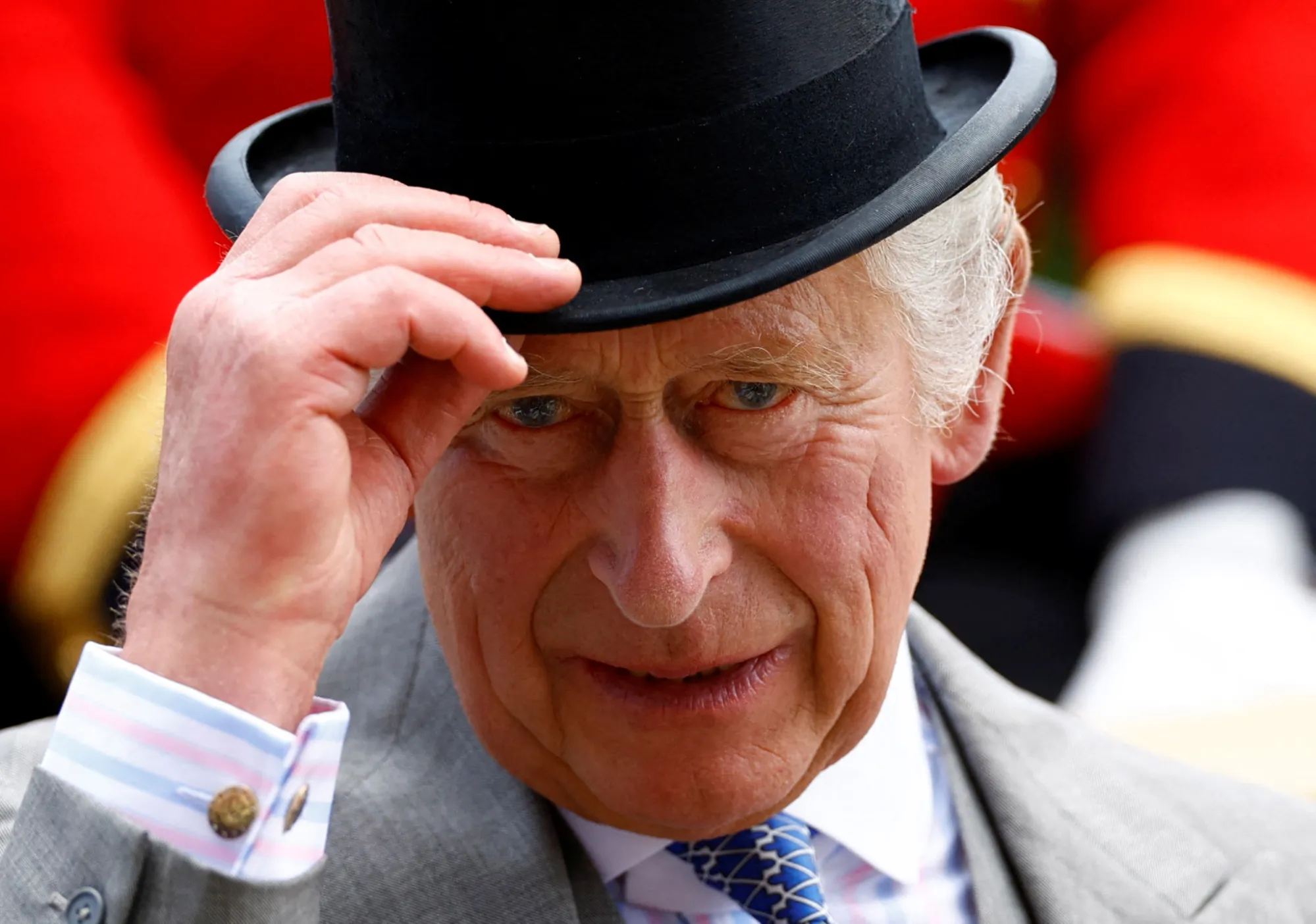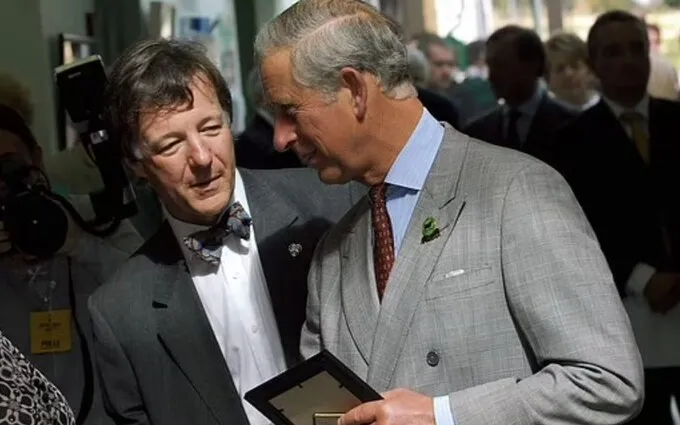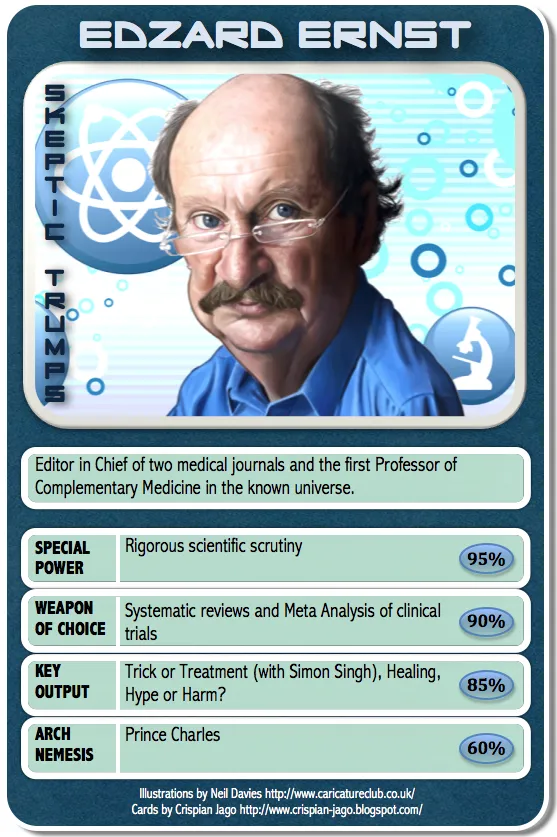Majestic magical thinking
Louise Richardson - 4th March 2024
A brief look at England’s royals and alternative medicine and therapies
His grandmother Queen Elizabeth, the Queen Mother, lived to the ripe old age of 101, his father Prince Philip was 99 when he died in 2021, and his mother, the late Queen Elizabeth, reached 96 before her death in 2022, so King Charles, now 75, obviously has the benefit of good genes.

Earlier this year the most precious of all crown jewels were subject to a minor procedure - carried out in order to correct a benign enlarged prostate. Following a short stay in hospital, it was announced that the monarch had unexpectedly been diagnosed with cancer, the nature of which he has chosen not to reveal.
It goes without saying that Charles will be enjoying the very best quality medical care available – way above the day-to-day standards of Britain’s beleaguered National Health Service (NHS) - and more importantly, thanks to his spectacular wealth, without languishing on a months’ long waiting list. What’s more, it was confirmed that the cancer was caught at an early stage, leading to an excellent prognosis for the king.
Along with receiving cutting-edge radiotherapy or chemotherapy, and other expensive and possibly ground-breaking oncology drugs, unfortunately it seems likely that Charles will also be dabbling in his favourite alternative therapies, which include homeopathy, reiki, herbal medicine, chiropractic, osteopathy, iridology and acupuncture.
He has previously touted the effectiveness of Gerson Therapy for cancer, so it’s possible that his majesty is currently receiving daily coffee enemas and that huge amounts of fruit are being juiced for him by his staff. These are aspects of a completely unscientific protocol devised by German physician Max Gerson, prior to World War Two.
When the then-prince praised Gerson’s ideas publicly in the early 2000s, he earned himself a stern rebuke from specialists who were rightly concerned that following such an approach could do more harm than good for cancer patients.
No doubt the king is also being supported in his embrace of unproven and potentially dangerous ideas by the head of the royal medical household, Dr Michael Dixon, begging the question as to how a physician with a well-known leaning towards alternative treatments, particularly homeopathy, was able to bag such a top job.

Dixon’s selection for the lofty position was only relatively recently revealed – several months prior to the king’s cancer diagnosis, and over a year after he began working for Charles. Media reaction was swift and negative, forcing the palace to put out a statement confirming the appointment and defending the doctor’s unusual views.
“Dr Dixon is a practising GP; a Fellow of the Royal College of GPs; a fellow of the Royal College of Physicians; former chair of NHS Alliance; former co-chair of the National Social Prescribing Network; former NHS England national clinical champion for social prescribing and the chair of the College of Medicine. He also has an OBE for services to primary care.
“Dr Dixon does not believe homeopathy can cure cancer. His position is that complementary therapies can sit alongside conventional treatments, provided they are safe, appropriate and evidence based.
“As Prince of Wales, the king’s position on complementary therapies, integrated health and patient choice was well documented. In his own words: ‘Nor is it about rejecting conventional medicines in favour of other treatments: the term ‘complementary’ medicine means precisely what it says’.”
All of which sets the scene for a worrying situation. With so much pseudoscience and rampant mistrust of evidence-based medicine reverberating around the globe in light of the current Covid-19 pandemic, the very last thing experts fighting to keep control of the coronavirus’ fallout need is a renewed royal nod to alternative medicine.
Given the monarch’s cancer diagnosis and the likelihood that he actually is embracing woo – in addition to timely, science-based treatment, it’s worth reflecting on the fact that while believing in a vast plethora of dodgy health-related concepts, the British royal family have long been staunch supporters of homeopathy - in particular.
It’s a concept devised by a German physician named Samuel Hahnemann during the late 1700s, which is based on the belief that ‘like cures like’ and that water has the capacity to remember substances with which it has previously come into contact - and store that information.
Charles’ great-great-great grandmother, Queen Victoria, was a fan of homeopathy, and the king’s grandparents, including King George VI, who nevertheless died an unpleasant death from lung cancer, and his mother, were also adherents.
It’s rumoured that not only did the late Queen Elizabeth employ the services of homeopathic physicians to attend to her own health; they were also charged with looking after her beloved racehorses and, more than likely, the iconic royal corgis.
Tragically the late queen’s personal homeopathic physician of 15 years, Dr Peter Fisher, was killed in a cycling accident in London’s Holborn in 2018, a little over a year prior to Covid’s arrival.
To his credit, despite being a fierce advocate for homeopathy – he served as director of research at the Royal London Hospital for Integrated Medicine, (RLHIM) - Fisher held rational views on vaccination, and was quoted as saying:
“Some homeopaths attack vaccination unaware that in the 6th edition of the Organon, Hahnemann has said that vaccination is a wonderful thing, and it has saved the lives of children.
“In the present day and age, we have been able to eradicate polio, smallpox, diptheria and even tetanus by judicious use of vaccination. I see cervical cancer being wiped out by the use of the HPV immunization program.
“We have to wake up to the benefit of vaccination. There can be some adverse effects, no doubt, but vaccination has done a lot of good. Homeopaths would be able to do a lot by staying out of the vaccine controversy.”
Following Fisher’s death, as the seriousness of the pandemic and its potential for mass death became frighteningly clear in early 2020, the queen and her immediate family were obviously encouraged to put their homeopathic remedies aside and sign up for the Covid 19 vaccine, which was developed in around a year. Elizabeth and Philip received their first dose on January 9, 2021, while Charles took his on February 21.
King Charles must have had mixed feelings about this, given his own fondness for what he likes to describe as ‘complementary’ medicine, an obsession which has been well-known for years - as has a penchant for other somewhat odd activities, such as an eccentric approach to organic farming on the many royal estates, and talking to his plants.
He had contracted the virus, early-on, in March 2020, and saw out a mild case of the illness – wherein he temporarily lost his sense of taste and smell - at Birkhall, his Scottish estate, undergoing a seven-day isolation period. Charles tested positive again, almost two years later, at Clarence House in London where, once again, he came through the experience remarkably well.
What has always been worrying is the king’s meddlesome nature when it comes to his favoured woo and the famous ‘black spider memos’ written in sprawling script via a royal fountain pen to members of parliament and others in authority over the years have tended to be on the ‘alternative’ side, advocating for greater official acceptance of systems such as homeopathy - along with detailing and lobbying for some of his other very strong personal interests, which include (sometimes appropriately) the climate, and aspects of architecture.
Such is the depth of his passion for alternative therapies, as Prince Charles he founded several bodies, over the course of 20 years or so, devoted to bringing the treatments he favoured into the publicly funded system. He commissioned reports and made emotional speeches, imploring audiences to side with his view that irrational aspects of the ancient world, long disproved, had a genuine place in modern medicine.
Extraordinarily, in 1982, Charles was actually elected to the role of president of the British Medical Association, a seemingly stunningly inappropriate position for a young science denier with a patchy education, which had culminated in a very modest 2:2 Bachelor of Arts (BA) degree from Cambridge University, conferred in 1970.
Not surprisingly the now monarch made few friends in the medical sphere, quickly getting offside with actual experts in the field who objected to his lecturing and hectoring, but there is one significant former friend whose views are worthy of exploration.
Edzard Ernst is a rarity in the world of science and medicine. The British-German academic was brought up in a family who believed in homeopathy and subsequently devoted the first part of his career to studying and attempting to promote alternative medicine.

However, as professor of Complementary Medicine at the University of Exeter, he had a sort of epiphany, realising that despite leading a large and well-resourced team studying an impressive array of alternative medicines and therapies, results signalling efficacy and safety simply weren’t appearing. Eventually this caused the professor to re-evaluate his beliefs, accepting that any apparently positive results of homeopathic treatment were little more than placebo, and he effectively changed sides - becoming a very vocal fox in the henhouse, as it were.
While he admits in the introduction to his 2022 book: Charles The Alternative Prince – An Unauthorised Biography, that he and the king were once on the same side – friendly, even, when it came to alternative medicine - Ernst points out that they no longer see eye to eye and that interference by Charles’ staff, acting on his behalf after the former took umbrage at Ernst - and a particular example of perceived criticism - led to the professor being forced to retire from the University of Exeter, in 2009.
Ernst doubled down on his criticism of Charles in the following months, after the Duchy of Cornwall moved out of its traditional – and very successful - genre of organically produced oat biscuits, and produced a detox ‘tincture’ made using ‘natural’ ingredients that included dandelion and artichoke.
The professor indeed ‘choked’ at the outlandish claims being made by the royal company (from which the king doesn’t directly benefit financially) about the product, and after a brief flurry of distinctly unflattering press coverage, the tincture disappeared from the market.
While the king’s current medical situation is stoking fears that his famous leaning towards alternative therapies might leap into action again, the good news is that the NHS discontinued funding for prescribed homeopathic treatment in 2017 with its then chief executive, Lord Stephens of Birmingham, describing it as ‘at best a placebo and a misuse of scarce NHS funds’, which is surely pretty damning.
More recently, France has taken a similar stand to the NHS position and, in a stunning move (according to The Times), as of earlier this year Hahnemann’s home country, Germany is also threatening to ban the use of public medical insurance to fund homeopathy. This won’t actually save a great deal of money overall (an estimated €10 million a year), but it definitely makes a strong statement about homeopathy’s lack of efficacy.
It looks likely that Charles’ conventional cancer treatment will be successful, and it remains to be seen whether he will pin a successful outcome on the marvels of modern medicine or on the dubious efficacy of herbs, homeopathy and treatments such as reiki.
However, the overriding attitude of today’s mainstream media is thankfully dismissive of the monarch’s more wacky ways, and hopefully this means that any claims from his camp of ‘natural’ remedies leading to a complete cure are unlikely to gain significant traction.
What is homeopathy?
To be fair, medical choices in Samuel Hahnemann’s times were pretty limited and rudimentary so while his own public’s embrace of his ideas might have been understandable, it’s hard to comprehend how such an implausible and indeed impossible system is still considered feasible – let alone effective, by anybody today.
‘One imitates nature, which sometimes cures chronic diseases by adding another disease, and then uses in the (preferably chronic) disease a drug that is capable of exciting another artificial disease as similar as possible to the natural disease to be cured,’ Hahnemann wrote.
In other words, he was proposing that Similia Similibus Curentur; treating ‘like with like’ could conceivably cure a disease or affliction.
An early example of homeopathic treatments promoted the poisonous Belladonna (Deadly Nightshade) for treating conditions such as colds and migraines. However, being such a toxic killer, such use of this particular plant was clearly going to backfire pretty quickly, so Hahnemann hit upon the peculiar concept of promoting Belladonna in a diluted form, so diluted that it no longer actually existed within the solution yet was allegedly still effective.
In order to make his magical-thinking premise ‘work’ the doctor proposed a equally weird method of succussion, which purportedly made the required, miraculous transformation happen.
To be honest, Hahnemann would have been much more at home as a showman. The outlandish routine he devised for succussion was theatrical and included the use of shaking the solution in saddlebags, banging it against an elaborate leather ‘striking boards’ or on a leatherbound book.
If you’re reading this piece as a visitor or novice, there are any number of websites describing Hahnemann’s theories and because they’ve been so decisively dismissed on a scientific basis, I’m not going to continue describing the practice, simply because it’s silly, convoluted, and makes absolutely no sense.